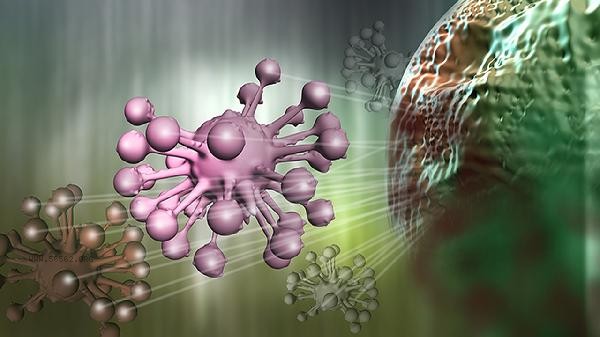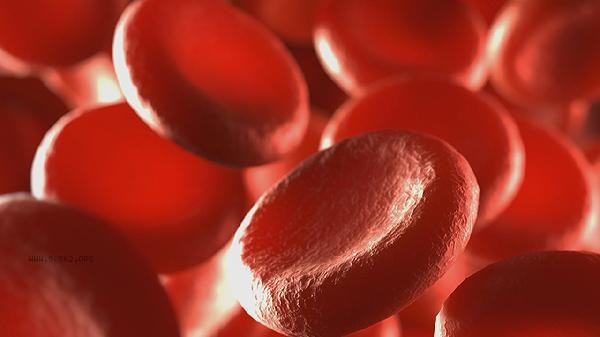A high absolute number of lymphocytes may be caused by viral infections, bacterial infections, autoimmune diseases, hematological disorders, or drug reactions. Lymphocytes are an important component of the immune system, and an abnormal increase in their number usually indicates the presence of immune response activity in the body.

1. Viral infection:
EB virus, cytomegalovirus, influenza virus and other infections can stimulate lymphocyte proliferation. After the virus invades the body, the immune system activates T lymphocytes and B lymphocytes for defense, leading to a temporary increase in the number of lymphocytes in the blood. This type of situation is usually accompanied by upper respiratory symptoms such as fever and sore throat.
2. Bacterial infection:
Infection with special pathogens such as tuberculosis bacilli and pertussis bacilli can cause an increase in lymphocyte reactivity. Unlike common bacterial infections dominated by neutrophils, this type of infection is characterized by a synchronous increase in the absolute value and proportion of lymphocytes, which may be accompanied by specific symptoms such as long-term low-grade fever and night sweats. 3. Autoimmune diseases: Diseases such as rheumatoid arthritis and systemic lupus erythematosus can lead to abnormal lymphocyte activation. When the immune system mistakenly attacks its own tissues, lymphocytes remain in an activated state and may exhibit a high absolute value, often accompanied by typical symptoms such as joint swelling and pain, rash, etc. 4. Hematological system diseases: Chronic lymphocytic leukemia, lymphoma, and other hematopoietic system tumors directly lead to malignant proliferation of lymphocytes. The elevation caused by such diseases is usually persistent and significant, and may be accompanied by systemic symptoms such as lymph node enlargement and weight loss, requiring further diagnosis through bone marrow puncture.
5. Drug reactions:

Antiepileptic drugs, immunosuppressants, and other drugs may cause drug-induced lymphocyte proliferation. This reaction is usually transient and can gradually recover after discontinuation of medication. Clinical identification should be based on medication history. When the absolute value of lymphocytes is found to be high, it is recommended to improve auxiliary tests such as C-reactive protein and virus antibody detection. Daily attention should be paid to maintaining sufficient sleep, supplementing vitamin C and high-quality protein in moderation, and avoiding excessive fatigue. Individuals with persistent abnormalities should undergo regular blood routine check ups and, if necessary, peripheral blood smear or bone marrow examination. During the acute infection period, it is recommended to drink plenty of water and seek medical attention promptly if the body temperature exceeds 38.5 ℃. When the pre pregnancy population shows abnormal indicators, it is recommended to complete relevant examinations before planning for conception.










Comments (0)
Leave a Comment
No comments yet
Be the first to share your thoughts!